- Home
- Newt Gingrich
Collusion
Collusion Read online
Dedication
We dedicate this book to the poison victims and others
who have been murdered by Russian president Vladimir
Vladimirovich Putin’s regime.
Epigraph
Russia never lost the Cold War because it never ended.
—Vladimir Vladimirovich Putin
Contents
Cover
Title Page
Dedication
Epigraph
Cast of Characters
Part I: The Bear Shows Its Claws
One
Two
Three
Four
Five
Six
Seven
Eight
Nine
Ten
Eleven
Twelve
Thirteen
Part II: Escape from Moscow
Fourteen
Fifteen
Sixteen
Seventeen
Eighteen
Nineteen
Twenty
Twenty-One
Twenty-Two
Twenty-Three
Part III: A Killer Cometh
Twenty-Four
Twenty-Five
Twenty-Six
Twenty-Seven
Twenty-Eight
Twenty-Nine
Part IV: The Devil’s Breath
Thirty
Thirty-One
Thirty-Two
Thirty-Three
Thirty-Four
Thirty-Five
Thirty-Six
Thirty-Seven
Thirty-Eight
Thirty-Nine
Forty
Forty-One
Forty-Two
Forty-Three
Forty-Four
Forty-Five
A Partial Listing of Murders and Other Mysterious Deaths During the Putin Era
Acknowledgments
About the Authors
Also by Newt Gingrich
Copyright
About the Publisher
Cast of Characters
Marcus Austin Moscow chief of station for the CIA
Elsa Eriksson NGO worker, Nigeria
Randle Fitzgerald U.S. president
Brett Garrett Former U.S. Navy SEAL
General Andre Borsovich Gromyko Russian president’s top advisor
Harold Harris CIA director
Makayla Jones Antifa leader
Vyachesian Leninovich Kalugin Russian president
Thomas Jefferson Kim Cybersecurity expert
Valerie Mayberry FBI Counterintelligence agent
Yakov Prokofyevich Pavel Deputy Russian foreign minister
Aysan Rivera Antifa member
Cormac Stone California U.S. senator
Part I
The Bear Shows Its Claws
Those who “abjure” violence can only do so because others are committing violence on their behalf.
—George Orwell
One
Two Years Earlier
The jihadist seemed to rise from the underworld. Crawling across the Cameroon terrain when he’d reached them before dawn. Navy SEAL Brett Garrett could see the color of his black eyes. Boko Haram. The missing twentieth fighter whom everyone except for Garrett had believed dead. He’d followed them from the bloodbath in his camp. Patiently waiting, watching them board the helicopter, waiting until liftoff, knowing it was his best chance to maximize deaths.
He shouldered his weapon at the same moment Garrett raised his rifle from his seat inside the open cargo door. Garrett fired and in that same instant saw the rocket-propelled grenade flying at the cockpit.
A bright yellow burst. Instant loss of hearing. Instant concussion. Instant confusion. The machine fell. Its shell smacking into the earth, throwing Garrett free but on fire.
Still conscious enough to roll over, over, and over again. What of the others? He didn’t know. He’d disobeyed a direct order. He was responsible for what was now happening. But he’d done it for the right reasons.
Hadn’t he? Surely, they would understand. He’d wanted to save the children.
Two
Current Day
A shrill alarm pierced the darkness. A hulking figure stepped outside the building into the minus-twelve-degree temperature cradling an unconscious woman in his arms. Roof floodlights illuminated the snow-covered grounds. Svetogorsk, Russia. A facility hidden outside the town in a dense forest.
The man trudged through a foot of snow toward a 1980s-era, rusty Lada parked alongside a half-dozen other tired Soviet-era vehicles. It was a twenty-yard trek to the car. The man almost made it halfway before a thin line of blood trickled down from under the protective mask covering his nose and mouth. His breathing became gasps. Two steps more before he fell to his knees still holding the listless woman. His wife.
He struggled to remain upright; he gazed forward at the parked Lada as if he were picturing himself reaching it. So close. His heart stopped. He fell, covering his wife’s corpse.
The alarm ended but the spotlights continued to shine, causing the snow to glisten. Twinkles of bright and faint ice diamonds.
Two figures. A man and a woman in hazmat suits. Like space travelers, they emerged from the building, following the man’s footsteps to where he and his wife were motionless. Disfigured snow angels.
With thick-gloved hands, the man leaned down. Inspecting the bodies.
“We must incinerate the corpses before we contact Moscow,” he said through a microphone to the woman with him.
“General Gromyko will be angry,” she replied.
“We cannot to be blamed!” the man snapped. “Accidents happen.”
“Accidents? This was no accident.”
“Don’t be a fool. Immediate cremation. For everyone’s protection.”
“They have a child,” she said. “Peter. A mute.”
“The boy is of no consequence to us. General Gromyko will deal with him.”
The woman stared down at the dead couple. “Her father holds a high position in the Foreign Ministry,” the woman said.
“Which is why we must burn these bodies quickly and report their deaths as an accident.”
The man stood, turned his back to her and the dead couple, and began making his way through the snow to the building. The woman hesitated, glanced over her shoulder to be sure he was not watching, and made the sign of the cross.
Her lips moved. A prayer for the dead.
Three
Two years earlier
Elsa Eriksson couldn’t sweat.
Dehydration. The body loses 10 percent of the water it takes in every day through sweat. That’s what the nursing instructors in Sweden had taught her.
Lying in the fetal position on the hard ground, she guessed it was at least a hundred degrees. She’d asked her kidnappers for water, but they wanted her weak, compliant—not dead. She was worthless to them dead. One bottle of water per day—sixteen fluid ounces—handed to her bound wrists for her to lift underneath the loosened black hood slipped over her head.
With her bare feet—they’d taken her shoes—she’d felt the bare ground beneath. Extending them out, she touched the mud walls of what she assumed was an African mud hut. She decided to stand and was met with a sucker punch to her abdomen. She fell back to the floor. Someone was guarding her.
She had no one to blame but herself.
The Nigerian army commander had told her not to leave the compound. Thirteen-foot-tall pieces of corrugated metal—each four feet wide—protected “New Banki City” in this northern province—although it was hardly a city by any definition. Cities had municipal services, order, normality. New Banki was a refugee camp.
Eriksson had been warned before leaving Sweden. Still, she was shocked
when she’d first arrived three months ago. Trash-strewn dirt paths, bombed-out concrete buildings, flimsy tents. Inside the camp were children, women, and old men. No males of fighting age. They’d been herded sheeplike into trucks for transport to Nigerian army detention centers. Outside the enclosed compound, Boko Haram was in control. Islamic extremists. Kidnappers. Murderers. Rapists. Suicide bombers in training eager to claim their celestial virgins. She’d entered a human toilet bowl edged by IEDs—a cesspool of disease and death unlike anything she’d witnessed.
The Nigerian commander had confiscated all the medical supplies that she’d brought from her employer, a Swedish humanitarian NGO, and only after her repeated threats to report him to the Swiss and Americans had he returned less than a third of them, selling the rest on a thriving black market. Having a Swedish father and American mother gave her twice the diplomatic clout.
She had stuck out. A too-thin, unmarried, thirty-year-old Christian woman in an ocean of uprooted Muslims. The army soldiers took bets about how long she would stay.
The explosion had come at dusk. An IED tripped by one of two women who’d left the compound at dusk to gather firewood. One had returned staggering. Cuts, bruises, and totally confused. The Nigerian soldiers had smirked. They showed no interest in searching for the other woman.
Eriksson had gone out with a medical bag. A recent Christian convert, Abidemi, which translated to “girl born when father was away,” had accompanied her.
Eriksson, Abidemi, and Jesus wandered in the darkness. Outside the camp, they’d proven easy prey.
Now captive in a Boko Haram hut, Eriksson could hear Abidemi screaming nearby. Fourteen. Unlike the foreign NGO worker, Abidemi was not worth a ransom.
“Please, God, save us,” Eriksson whispered. “Please, send someone, Jesus, someone to save Abidemi and me.”
Four
Current Day
Yakov Prokofyevich Pavel glanced pensively from his upper-floor window at the Ministry of Foreign Affairs of Russia, one of Moscow’s seven landmark Stalinist skyscrapers. It was Nikita Khrushchev who’d recalled Stalin’s words: “We won the war . . . foreigners will come to Moscow, walk around, and there are no skyscrapers. If they compare Moscow to capitalist cities, it’s a moral blow to us.” Stalin had demanded his architects build them. Posturing for the world. Necessary after World War II, even more so now. Stalin had asked for forty stories, but twenty-seven was as high as they could reach in 1953. His builders’ limited skills were a national secret—like so many others. Heavy steel frames with concrete ceilings necessitated a slab foundation that was more than twenty-two feet thick. Even with it, twenty-seven floors was the max. Pavel was on the twenty-sixth with its premium views.
Pavel had been told earlier this morning that General Andre Gromyko was coming. He spotted the general’s jet-black Mercedes-Benz S600 Pullman limousine—a gift from the Russian president—as it turned into the ministry’s circular driveway. When Pavel was a party member, no high-ranking Communist would have risked driving a foreign luxury car. But that was before.
The seventy-two-year-old Pavel remembered the past, unlike the junior diplomats scampering around him. Before the end of the Soviet empire, President Vyachesian Leninovich Kalugin had been considered a mediocre KGB agent at best, not considered particularly bright and with little potential for advancement. How then had such a man seized control?
Like so many of his fellow Russians, Pavel had welcomed the end of the old Soviet Union but had been unprepared for what had followed. A drunk Boris Nikolayevich Yeltsin had been swept into power only because of a single courageous act—standing on a Soviet tank defying the KGB’s 1991 aborted August coup. It had been Yeltsin who had first opened the corruption floodgates, permitting the looting of the country’s vast resources, giving birth to both the Russian mafia and money-grubbing oligarchs.
The Americans were not blameless. They had emasculated Russia, stripped it of its pride—declaring themselves the world’s only superpower—creating resentment. Looting Moscow became the new rule for the powerful.
Vyachesian Kalugin had seized the moment, tapped into the centuries of distrust. Fueling the bitterness, he’d taken advantage of a nationalistic wave, a need for restored pride. The old guard had badly underestimated him. The ambition. The ruthlessness behind the grin. His insatiable greed. A Russian Gordon Gekko with a gun. Not a literary symbolic wolf of Wall Street but a genuine wolf trained by the KGB. A bribe or a bullet. What man would refuse to kneel?
The Kremlin was now a kleptocracy. Western intelligence estimated Kalugin’s personal wealth at $80 billion, magically accumulated while being paid less than $200,000 per year on his government salary. Where were the cries of corruption? Where was the demand for an accounting? Critics were jailed or murdered. Others were fellow pigs feasting at the trough. Or, like Pavel, they remained silent.
President Kalugin had chosen a brutal lackey of limited intellect as his closest advisor. General Andre Gromyko’s military rank and chest filled with colorful medals were as fraudulent as his toothy smile and too-firm handshake.
A hurried knock on his office door snapped Pavel to attention. His secretary stepped in.
“The general and his aides have entered the lobby. Should I serve vodka or water with gas?”
“Vodka.” The one constant in Russia.
“Cookies?”
“You decide.”
A look of trepidation fled across her face. She was older and from a generation that remembered the dangers of the simplest, most innocent error. Pavel’s mother had once told him a story about when she had worked for Lavrently Pavlovich Beria, the brutal secret police chief and overseer of gulag labor camps. After the war, she’d been assigned to Beria’s secretarial typing pool. One day he’d entered and asked in his charming voice, “Girls, who typed a letter for me yesterday addressed to our party leader in St. Petersburg?” No one had raised a hand. Silence. “Come, girls,” Beria repeated softly, “I’ve lost my copy of the letter, and there is a small detail I need to recall.” A young typist stood and, when he asked, provided the missing detail.
Pavel’s mother had never forgotten what had happened next. Two men dragged the girl away. Beria’s mood had changed from pleasant to cruel. “You girls are to type letters. You must never read them.”
Brutality. Yet another constant. Another carryover from the past.
“Bring cookies,” Pavel said, moving from the window to his desk. He would not be standing to greet General Gromyko. A Beria still in diapers.
His secretary announced them. Gromyko paraded inside like a peacock with an attractive, much younger woman following him. Pavel glanced up from his desk. Neither offered a welcoming hand. Gromyko sat in a chair facing Pavel. The woman on a stool behind him.
“Yakov Prokofyevich, I’m sorry to report bad news,” the general announced, although his voice and facial expression registered no signs of sorrow. “Your daughter and son-in-law.”
Pavel’s jaw tightened.
“An unfortunate accident. Both are dead.”
Gromyko spoke with the empathy of a babushka dropping a hatchet across a chicken’s neck.
Pavel’s secretary entered with a silver tray that she placed on Pavel’s desk before excusing herself.
“When and where?” Pavel asked.
“They died serving our motherland. There is little else I can tell you. Both were chemists, were they not?”
His question was insulting.
“Honor graduates from MIPT, and both were working for you.”
“Ah yes, the Moscow Institute of Physics and Technology,” Gromyko responded. He glanced at the unopened vodka and sugar cookies. Leaning forward from his chair, he helped himself to a cookie. “A decent school, I’ve heard. If I recall, you graduated from the Moscow State Institute of International Relations, our Russian Harvard.”
Pavel didn’t reply.
“And yet here I sit,” Gromyko continued, glancing around Pavel’s office. “Your supe
rior—a simple former KGB officer who attended the St. Petersburg Mining University, but for only a brief period. I found school rather unchallenging.”
Again, Pavel remained stone-faced.
Dismissively tossing half the cookie back onto the silver serving tray, Gromyko licked crumbs from his fingers and said, “Shall I assume you had no communication with your daughter and your son-in-law?”
“I was told their work required secrecy,” Pavel said.
“Always the clever diplomat. Your reply does not answer my question. When was the last time you spoke to your daughter?”
“I have not been in communication with her since she and her husband began working for you.”
“Come now, you’re a widower. Your only family is your daughter, her husband, and your grandson—Peter, isn’t that correct?—and not a word from any of them in two years?”
“It is a price we willingly pay for the benefit of all, is it not?” Pavel said.
Gromyko let out a short sigh. “Again, the answer of a diplomat. Yakov Prokofyevich, both of us know rules can be bent, especially for someone such as you, a high-ranking, senior diplomat.”
Momentary mutual stares.
“General Gromyko,” Pavel said, “I assume you have made arrangements for my grandson to be brought to Moscow to live with me. When should I expect him?”
“Tomorrow. I will have a car bring him to your office.”
“And the remains?”
“Cremated. If you like, your grandson can bring them with him.”
Awkward silence.
“General Gromyko,” Pavel said, “is there more we need to discuss? I have a meeting, a matter of great urgency to the ministry, and I am late.”
“A meeting, but my dear Yakov Prokofyevich, you should be in mourning. Do you not wish to take a day off?”
His voice was taunting.
“The work of the state continues,” Pavel said.
“I will not think about leaving until after we have a toast in memory to your daughter and her husband. It is the only decent thing to do.”
He motioned to his female aide, who summoned Pavel’s much older secretary. The elderly woman opened the vodka with shaky fingers, pouring two shot glasses.

 1945
1945 Collusion
Collusion Trump's America
Trump's America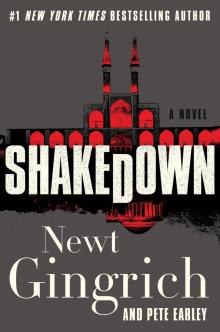 Shakedown
Shakedown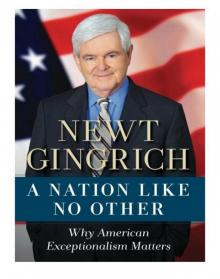 A Nation Like No Other
A Nation Like No Other To Try Men's Souls - George Washington 1
To Try Men's Souls - George Washington 1 Pearl Harbor: A Novel of December 8th
Pearl Harbor: A Novel of December 8th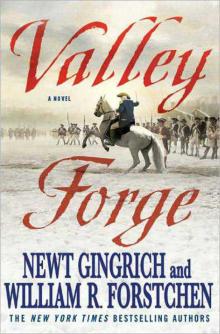 Valley Forge: George Washington and the Crucible of Victory
Valley Forge: George Washington and the Crucible of Victory To Save America
To Save America Grant Comes East cw-2
Grant Comes East cw-2 Victory at Yorktown: A Novel
Victory at Yorktown: A Novel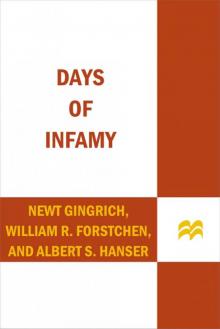 Days of Infamy
Days of Infamy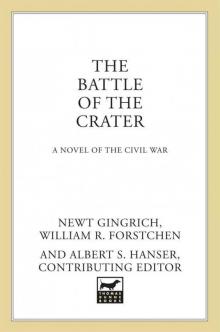 The Battle of the Crater: A Novel (George Washington Series)
The Battle of the Crater: A Novel (George Washington Series)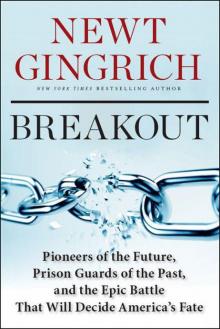 Breakout: Pioneers of the Future, Prison Guards of the Past, and the Epic Battle That Will Decide America's Fate
Breakout: Pioneers of the Future, Prison Guards of the Past, and the Epic Battle That Will Decide America's Fate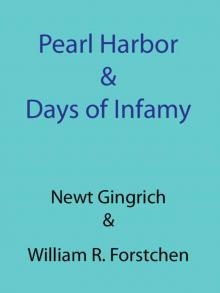 Pearl Harbour and Days of Infamy
Pearl Harbour and Days of Infamy Pearl Harbour - A novel of December 8th
Pearl Harbour - A novel of December 8th Understanding Trump
Understanding Trump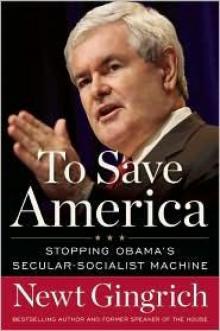 To Save America: Abolishing Obama's Socialist State and Restoring Our Unique American Way
To Save America: Abolishing Obama's Socialist State and Restoring Our Unique American Way